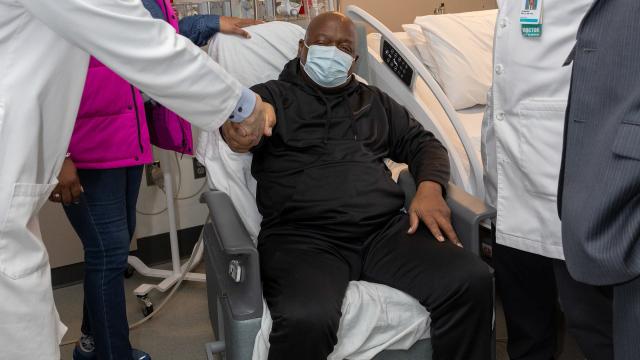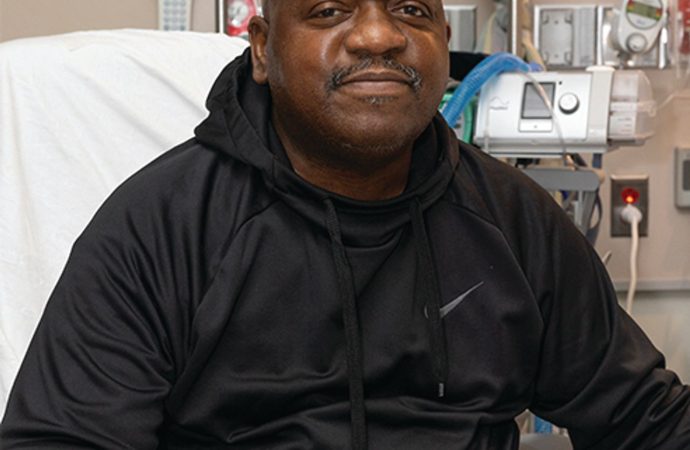Introduction Dr. Alexandra Martin, a leading researcher in xenotransplantation at Massachusetts General Hospital, has been at the forefront of groundbreaking work using genetically modified pig organs for human transplants. Recently, the news of the first recipient of a pig kidney, Rick Slayman, passing away has cast a shadow on this promising medical advancement. In this
Introduction
Dr. Alexandra Martin, a leading researcher in xenotransplantation at Massachusetts General Hospital, has been at the forefront of groundbreaking work using genetically modified pig organs for human transplants. Recently, the news of the first recipient of a pig kidney, Rick Slayman, passing away has cast a shadow on this promising medical advancement. In this blog, Dr. Martin will address the key questions surrounding Mr. Slayman’s death and provide insights into the future of xenotransplantation.
A Historic First: The Pig Kidney Transplant
The world watched with anticipation in March 2024 as news broke about a revolutionary surgery – the first successful transplant of a genetically modified pig kidney into a human recipient. Mr. Rick Slayman, a 62-year-old man suffering from end-stage kidney disease, received the pig kidney at Massachusetts General Hospital. This surgery marked a significant milestone in xenotransplantation, offering a glimmer of hope for millions awaiting organ transplants.
Dr. Martin explains, “The global organ shortage is a critical issue, with countless patients waiting years for a life-saving transplant. Xenotransplantation, using animal organs for human transplantation, has the potential to bridge this gap. The successful transplant of the pig kidney was a crucial first step, demonstrating the feasibility of this approach.”
Understanding Mr. Slayman’s Case: Cause of Death
Sadly, Mr. Slayman recently passed away. While the exact cause of death has not been made public, Massachusetts General Hospital has confirmed it was unrelated to the kidney transplant. Dr. Martin acknowledges the importance of transparency, stating, “Understanding the cause of Mr. Slayman’s death is essential. A thorough investigation will provide valuable insights to improve future xenotransplantation procedures.”
The Transplanted Kidney’s Performance: Success or Failure?
One of the most significant aspects of Mr. Slayman’s case lies in the functionality of the transplanted kidney. Dr. Martin elaborates, “The good news is that the pig kidney functioned exceptionally well for nearly two months. It successfully produced urine, a key indicator of normal kidney function. This demonstrates the potential of genetically modified pig organs to perform necessary biological functions within the human body.”
While Mr. Slayman’s passing is a setback, the functionality of the transplanted kidney signifies a scientific success. This valuable data paves the way for further research and refinement of xenotransplantation techniques.

Picture by: Massachusetts General Hospital
Moving Forward: Lessons Learned and Future of Xenotransplantation
The medical community mourns the loss of Mr. Slayman but remains dedicated to advancing xenotransplantation. Dr. Martin emphasizes, “Mr. Slayman’s case, despite the unfortunate outcome, offers invaluable information. We are learning more about the body’s response to animal organs and how to optimize immunosuppression regimens to prevent rejection.”
These learnings will guide future research and clinical trials. Xenotransplantation holds immense promise, and researchers are committed to overcoming the remaining challenges to make it a viable option for patients in need.
What This Means for You: Hope for Organ Availability
The news of Mr. Slayman’s passing might raise concerns about the viability of xenotransplantation. However, Dr. Martin offers a message of hope. “While there are setbacks on the road to scientific breakthroughs, this is not the end of the road for xenotransplantation. The field is constantly evolving, and this research holds tremendous promise for addressing the organ donor shortage.”
The success of the pig kidney’s initial function is a testament to the potential of this approach. With continued research and refinement, xenotransplantation has the potential to save countless lives in the future.
The Road Ahead: Challenges and Ethical Considerations
Xenotransplantation remains a complex field with hurdles to overcome. Dr. Martin acknowledges these challenges, including the potential for animal viruses to transmit to humans and the ongoing ethical discussions surrounding the use of animal organs.
“Researchers are actively addressing these challenges,” assures Dr. Martin. “Strict protocols are in place to screen animals for potential viruses, and ethical considerations are at the forefront of every decision. Open communication with the public is crucial as we navigate this new frontier in medicine.”
Conclusion
In closing, Dr. Martin expresses her deepest condolences to Mr. Slayman’s family. She reiterates the medical community’s commitment to honoring his contribution to this groundbreaking research. “Mr. Slayman’s participation has significantly advanced the field of xenotransplantation. We are dedicated to continuing this work and dedicated to continuing this work and realizing the potential of xenotransplantation to save lives. The future of organ transplantation is bright, and Mr. Slayman’s bravery has played a pivotal role in bringing us closer to that future.”




















